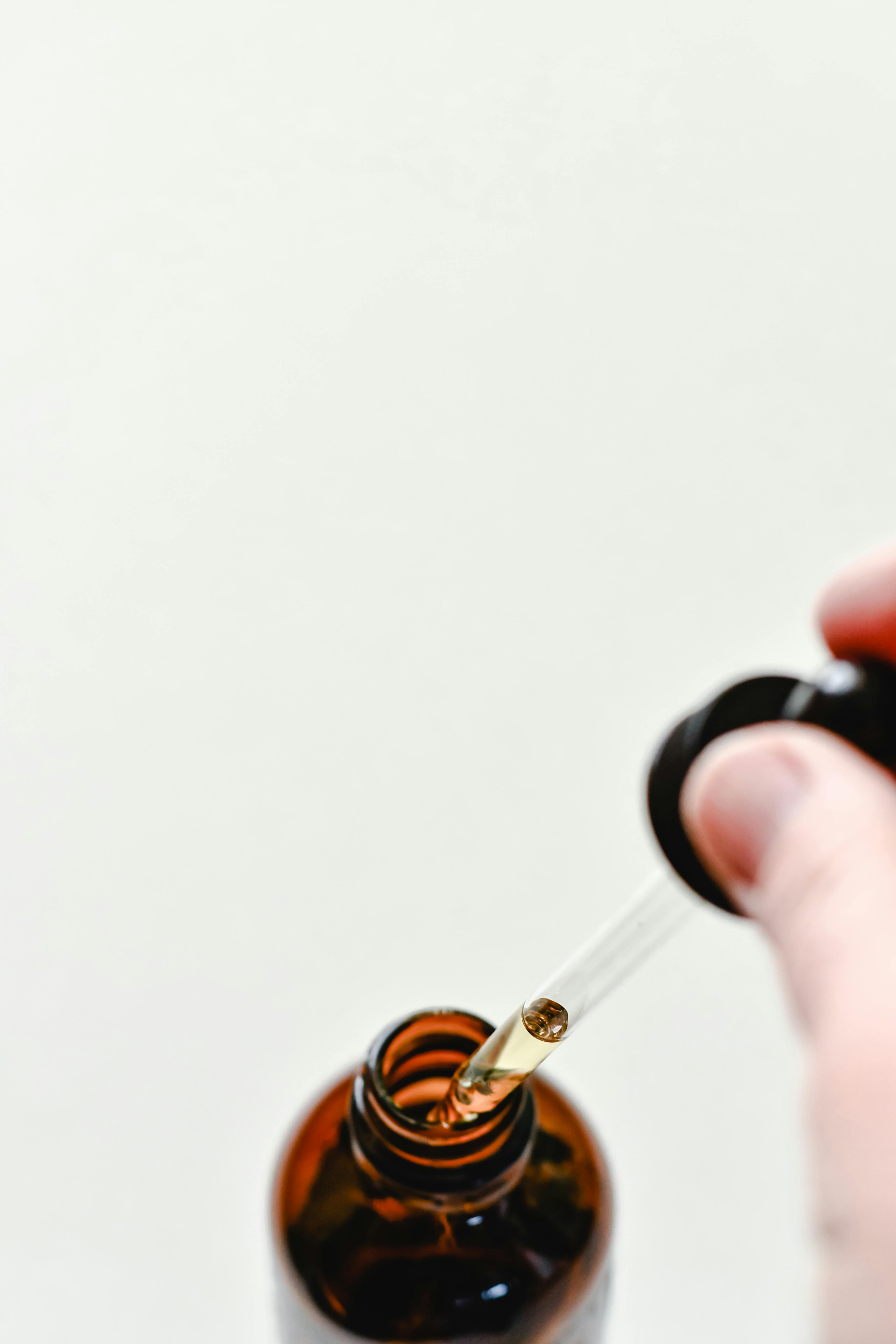
Effective Ways to Treat Baby Acne in 2025
Baby acne is a common condition that many new parents encounter. Understanding how to care for your baby's skin effectively and safely is crucial. In this article, we will explore proven solutions to treat baby acne, discuss the underlying causes, and provide practical advice for preventing and managing this skin condition. With the right knowledge, parents can help their newborns achieve healthy, clear skin. Let’s delve into the multiple ways to approach baby acne treatment and care.
The importance of addressing baby acne goes beyond aesthetics; it significantly impacts your baby's comfort and overall skin health. By following the insights and recommendations provided here, you will be equipped with a comprehensive understanding of how to treat baby acne effectively. We will also cover supportive skincare routines, suitable medications, and when to seek professional advice.
With expert insights and actionable tips, this guide is intended to empower you in caring for your baby's skin, ensuring it remains soft, healthy, and free from irritation.
Key takeaways include recognizing symptoms, the importance of gentle cleansing, and the utilization of specialized baby skincare products. Now, let's explore these effective treatments and preventive strategies.
Understanding Baby Acne: Causes and Symptoms
To effectively treat baby acne, it’s essential first to understand its causes. Baby acne is generally triggered by maternal hormones that are still present in a newborn's system immediately after birth. These hormones can overstimulate the oil glands in the baby's skin, leading to common skin conditions like acne, which can manifest as small red bumps or whiteheads.
The symptoms typically appear on the face, especially around the cheeks, nose, and forehead, but can also occur on the scalp or back. New parents should note that baby acne usually appears within the first three weeks of life, often resolving itself within a few months. It's crucial to differentiate baby acne from other rashes which can signify more serious conditions. If your baby's acne seems severe or persists over time, obtaining a pediatrician’s advice is essential.
Recognizing these symptoms can help distinguish baby acne from other skin problems, ensuring appropriate treatment is promptly administered. With this foundational understanding, we can move towards effective treatment strategies for baby acne.
Common Baby Acne Treatment Methods
When it comes to treating baby acne, there are several gentle methods that parents can utilize to provide relief for their infants without irritation. Among the most recommended treatments are gentle cleansers specifically formulated for babies. Products containing mild ingredients without harsh chemicals should always be preferred to maintain the skin's natural barrier while doing effectively cleaning.
In addition to cleansing, moisturizing is crucial in the treatment of baby acne. Look for gentle, non-comedogenic moisturizers to hydrate the skin without clogging the pores. Using creams that are hypoallergenic can help soothe irritated skin while promoting healing.
Furthermore, pediatric dermatologists often recommend certain over-the-counter treatments, but these should only be used under the guidance of a healthcare professional. Avoiding any abrasive scrubs or strong topical treatments will help to keep your baby’s skin calm.
Alongside traditional treatments, many parents find success with natural remedies such as chamomile or calendula to soothe inflamed skin. However, it’s critical to patch-test any natural remedy on a small area to avoid potential allergic reactions. Overall, balancing treatments with the gentleness of baby skincare is key to achieving better skin health.
Gentle Skincare Routine for Baby Acne
A consistent and gentle skincare routine is essential for treating and preventing baby acne effectively. Begin the routine by washing your baby’s face gently with lukewarm water and a mild, non-irritating cleanser. Choose cleansers specifically designed for baby acne, as these products will be formulated to cleanse without stripping the skin of its natural oils.
Pat the skin dry using a soft cloth, avoiding any harsh rubbing that can exacerbate irritation. After cleansing, it is advisable to apply a light, fragrance-free moisturizer to help maintain skin hydration. A baby-specific moisturizer helps provide comfort and protects the skin barrier.
Moreover, it’s essential to keep your baby’s skin dry, especially in areas prone to sweat. Always remove any excess moisture after washing or if your baby gets wet during play, as dampness can worsen acne. Regular inspections of your baby’s skin can help monitor any changes or reactions from products used.
Establishing this routine not only aids in treating existing acne but also helps prevent future breakouts by maintaining a clean, hydrated skin environment.
Preventing Baby Acne: Tips and Practices
Preventing baby acne is just as important as treating it. One key preventive measure is ensuring you avoid products that can irritate your baby's sensitive skin. Always opt for fragrance-free and hypoallergenic products, as these are least likely to provoke reactions.
During the teething phase, it's also important to manage excess saliva, which can sometimes lead to skin irritation. Regularly clean the areas around the mouth and chin to prevent rashes and breakouts.
Parents should also consider environmental factors that may contribute to breakouts. Keeping your baby's environment clean by regularly washing toys, bedding, and any fabrics they come into contact with might help reduce the chances of acne development.
Additionally, nutrition plays a vital role in skin health. Discussing a balanced diet with your pediatrician can provide the right guidance on feeding practices that support skin health and avoid irritating ingredients.
When to See a Doctor for Baby Acne
Determining when to seek medical advice for baby acne can be a source of confusion for many parents. Generally, baby acne does not require medical treatment; however, there are certain circumstances where a pediatrician should be consulted. If the acne appears severe, persists beyond the typical breakout duration of three months, or if your baby seems to be in discomfort due to the acne, it is essential to seek an expert’s evaluation.
Parents should also watch for any signs of infection, such as increased redness, swelling, or discharge from the pimples. These symptoms may indicate a need for prescription treatments or a more intensive evaluation. Consulting with a pediatric dermatologist will provide clearer insights into effective acne management and treatment plans tailored for your baby.
Early intervention can prevent complications; hence monitoring your baby's skin closely is vital. Pediatricians can offer personalized advice based on your baby's specific skin condition.

Top Tips for Baby Acne Care
Effective care for baby acne should be rooted in understanding both the do's and don’ts surrounding infant skincare. To avoid worsening conditions, always handle your baby’s skin with clean hands, and never squeeze or pick at acne lesions, which can lead to infections or scarring.
Additionally, consistent hydration is paramount; using a gentle baby moisturizer can stabilize moisture levels in the skin, helping to balance oil production. Furthermore, choosing the right fabrics for your baby's clothing and beddings can protect against irritation. Look for breathable materials like cotton that allow the skin to breathe.
Regularly consulting pediatricians about your baby's skin health ensures a well-rounded approach to managing and preventing baby acne. Professional insights can help parents navigate common myths surrounding baby skincare and steer clear of misconceptions about acne treatments.
Moreover, continuous education about stress factors that may impact your baby’s skin can enhance your overall approach in caring for their delicate skin. Building a knowledge base around effective treatments and care practices proves invaluable in nurturing healthier skin throughout infancy.
Final Insights on Baby Acne Treatment
Baby acne is typically mild and self-limiting, but effective treatment and care practices can greatly improve your baby’s skin condition. By focusing on gentle cleansing, regular moisturizing, and seeking timely medical advice, parents can provide an essential foundation of good habits that promotes healthy skin in their infants. Most importantly, understanding what baby acne looks like and differentiating it from other skin concerns will empower parents in making informed decisions regarding their baby’s skincare.
As every baby is unique, developing a customized skincare routine that adapts to their specific needs, with periodic evaluations, will play a key role in achieving optimal skin health. Armed with the right tools and knowledge, parents can navigate baby acne confidently and ensure their little ones have a great start in life with healthy skin.

Common Questions About Baby Acne
What are the main causes of baby acne?
Baby acne is primarily caused by maternal hormones present in the baby’s system post-delivery. Hormones can stimulate oil production in the baby's skin, leading to breakouts similar to adolescent acne.
How long does baby acne last?
The duration of baby acne can vary. For many infants, acne may clear up within the first few months of life, while for some, it may last up to six months. Regular monitoring is essential.
What should I avoid when caring for baby acne?
Avoid using harsh exfoliants or products containing alcohol, as these can irritate the baby's sensitive skin. Instead, choose gentle skincare products designed specifically for infants.
Are there natural remedies that are effective?
Yes, some natural remedies can be effective, such as chamomile extracts and calendula creams. However, always perform a patch test first and consult with a pediatrician before trying any new solution.
By maximizing understanding and following the appropriate strategies laid out in this guide, you can successfully manage baby acne and promote long-term skin health for your infant.